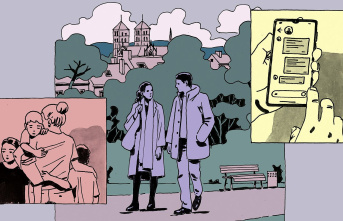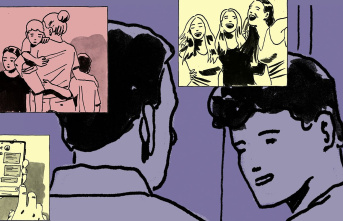The European Court of Human Rights has issued an order this Tuesday to stop the deportation of an Iraqi asylum seeker to Rwanda a few hours before the first flight to this country leaves, despite the complaints and complaints of the defense organizations of the Human rights.
"The European Court has indicated to the UK Government that the applicant should not be deported to Rwanda until three weeks after delivery of the final internal decision in his ongoing court trial," he said in a statement.
Specifically, the applicant, an Iraqi national, left Iraq in April 2022 and made a stopover in Turkey before traveling by ship across the English Channel to Europe.
Claiming to be in danger, he applied for asylum upon arrival in the UK on May 17.
However, a few weeks later, the applicant was notified that the authorities considered his application inadmissible and that he would be transferred to this country. Therefore, the European Court of Human Rights has issued such an order.
In addition, on May 27, a doctor from the Immigrant Deportation Center issued a report indicating that the applicant could have been a victim of torture, according to the statement published by the European body.
"The Court took into account concerns raised by the United Nations High Commissioner for Refugees (UNHCR) that asylum seekers transferred from the UK to Rwanda will not have access to refugee status determination procedures," has detailed.
The British network BBC has indicated that the Ministry of the Interior anticipates that the agency will present more individual court orders to prevent the flight from leaving in the framework of the multiple legal challenges faced by lawyers for asylum seekers, as well as NGOs and Human Rights defenders.
This decision by the European court, as the British newspaper 'The Guardian' has recalled, comes after Prime Minister Boris Johnson threatened to remove the United Kingdom from the European Convention on Human Rights.
“Will some laws need to be changed to help us as we move forward? It may very well be. And all of these options are under constant review," Johnson said, according to the 'Financial Times' newspaper.
A 'Boeing 767-300' is ready at a Ministry of Defense tarmac at Boscombe Down in Amesbury to take the first migrants to the East African country overnight on Tuesday, although there are still questions about whether it will finally leave.
This is because another Iraqi detainee, who would be on the deportation flight, will not board the device after a court order has prevented his departure, according to Sky News, although this information has not been confirmed by the European body. Said medium has also collected that the challenges of four applicants who should have been on the flight have been rejected.
A last attempt to block the flight, in which there would be about 40 passengers, was rejected by the Court of Appeal on Monday and later confirmed by the Supreme Court on Tuesday, as reported by the BBC.
Before the imminent departure of the plane, a group of half a dozen protesters has gathered at the main gate of the Ministry of Defense of Boscombe Down, in Wiltshire, with banners with slogans such as: 'Stop racist deportation' and 'Justice for the refugees'.
The agreement with Rwanda will allow British authorities to send asylum seekers who cross the English Channel to the African country. The agreement is endowed with 120 million pounds -144 million euros- and will focus mainly on men without family responsibilities who arrive in the United Kingdom through boats or trucks.
Downing Street has argued that the current approach to migration costs the UK £1.5bn (€1.7bn) every year, with nearly £5m a day housing asylum seekers in hotels.












